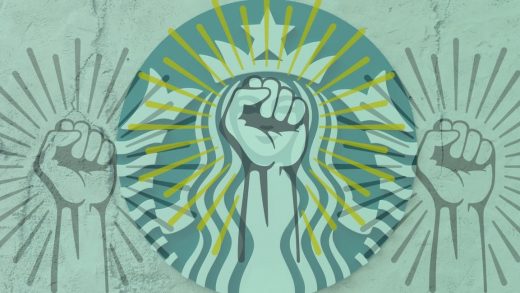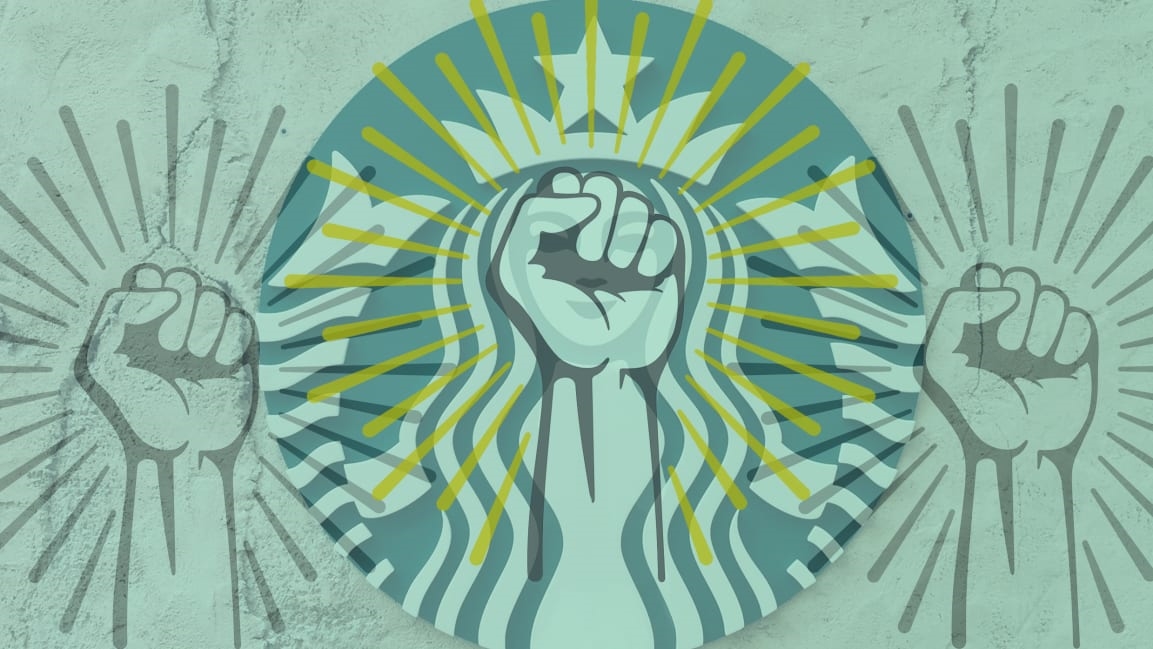Starbucks’s long history of fending off unions may be coming to an end
For years, Starbucks baristas have found public pressure to be a very useful tool for bargaining with their employer. If they wanted the dress code to be less draconian or managers to stop understaffing stores, they went on Reddit or launched a Change.org petition, and more often than not, Starbucks caved to some of their demands.
This was the Howard Schultz vision from the day he founded the coffee chain. For Schultz, Starbucks sought to create—like his own politics—a middle-ground “third way” that eclipsed service-industry mores by giving its hourly employees stock benefits, tuition reimbursement, and healthcare. Yet beneath this was a hostility to collective bargaining typical of Schultz’s progressive contemporaries from that era, like Whole Foods’s John Mackey. (“Unions are not the answer” were Schultz’s actual words on this matter.)
Starbucks has largely kept this course since Kevin Johnson took over as CEO in 2017, including after the pandemic roiled the service industry. And that’s why at three stores in Buffalo, baristas have formed a group called SB Workers United, and say they will try to form the chain’s first union to leverage negotiating power.
We are proud to announce that we have formed an organizing committee of SBWorkersUnited in the Buffalo region. Here is our letter to Kevin Johnson! pic.twitter.com/eOzPE4u1vy
— SBWorkersUnited (@SBWorkersUnited) August 23, 2021
Forming a union is a multistep process, and step No. 1 is filing a petition with the National Labor Review Board to hold the vote. The group did that (September 11, 2021). In a tweet afterward, it also explained many of the baristas’ frustrations in greater detail:
We are excited to announce that we officially filed petitions with the NLRB to hold union elections in three stores in the Buffalo region. You can help us by calling on Starbucks to sign the fair election principles! pic.twitter.com/IVeG9t4kpr
— SBWorkersUnited (@SBWorkersUnited) August 31, 2021
“We respect our partners’ right to organize,” Starbucks said in a statement, “but believe that they would not find it necessary given our pro-partner environment.”
Spokesman Reggie Borges told Fast Company that Starbucks believes its success has already been built “on direct engagement with our more than 400,000 partners around the world.” The view from Seattle headquarters is that the company encourages employees to discuss what’s on their mind at weekly listening sessions, from wages and COVID-19 safety protocols to work-life balance, and works to respond to them. While starting pay is still below $12 an hour in some markets, Starbucks increased wages twice over the past year, including by 10% at the end of 2020—a move it called “one of the most substantial investments in pay in our company’s history.” It closed stores at the height of the pandemic and rolled out additional benefits, such as day care for partners with children at home.
But workers counter that, right now, the point is just to resolve their lack of bargaining power. Brian Murray, a barista behind the union organizing letter, has responded that they “don’t need listening sessions and patronizing remarks from corporate. With a union we’ll have a real say and a democracy in each workplace.”
Another high-profile labor voice—Sara Nelson, head of the 50,000-member Association of Flight Attendants—put it this way when she spoke out (September 11, 2021) in favor of unionizing: Kevin Johnson would never show up to work without a contract. Why should baristas?
This story has been updated to correct a transcription error regarding the number of partners cited by Starbucks.
Fast Company , Read Full Story
(21)



